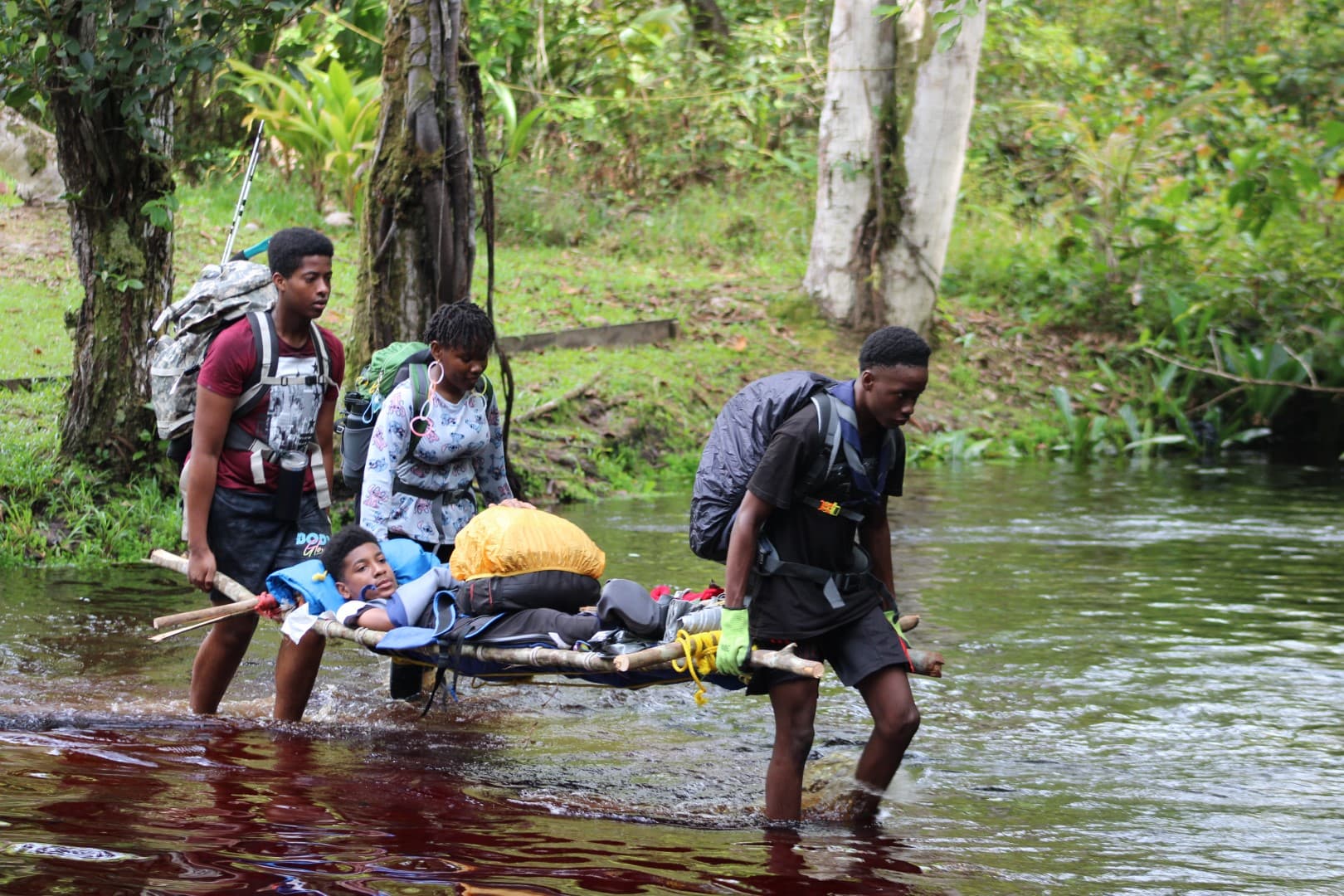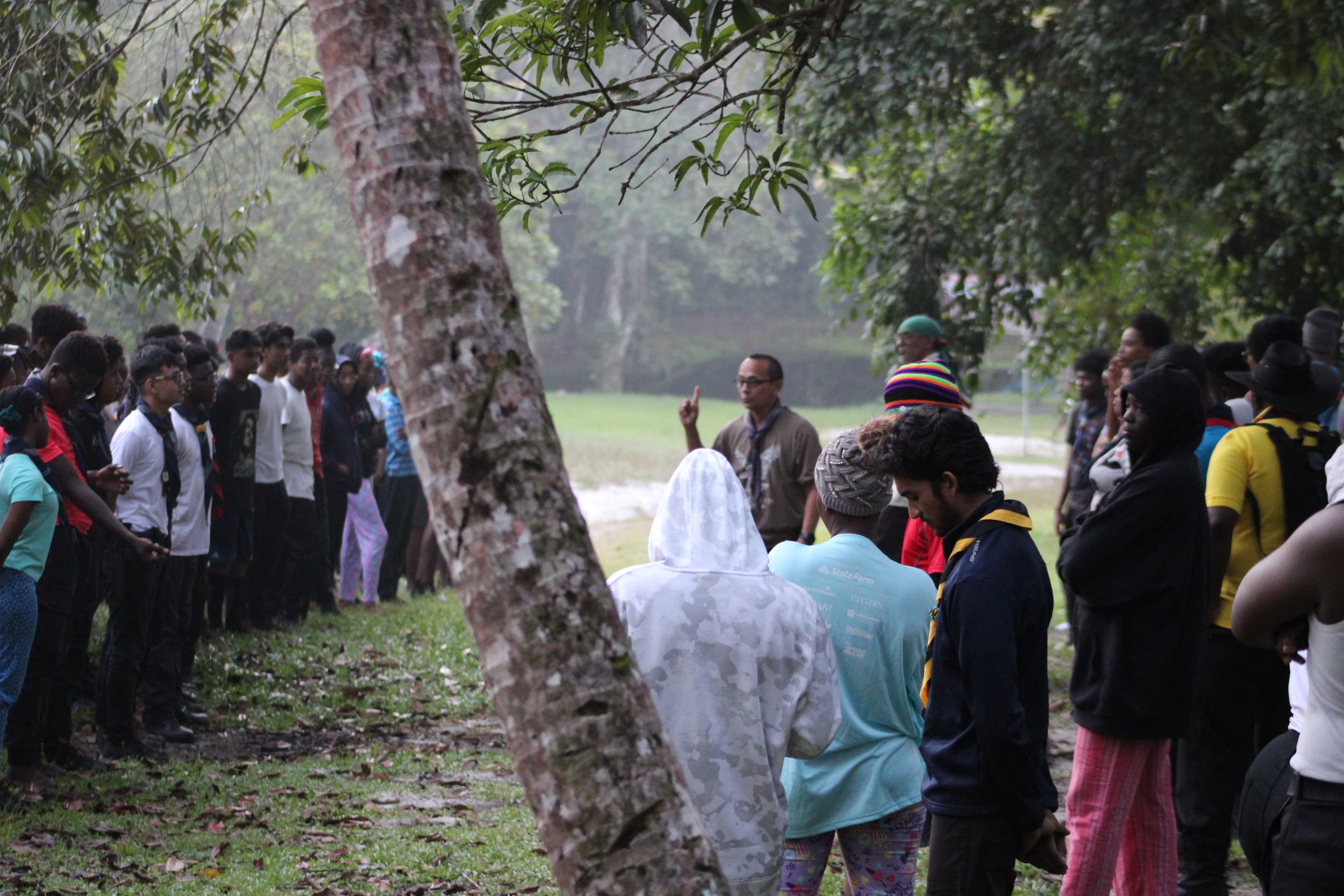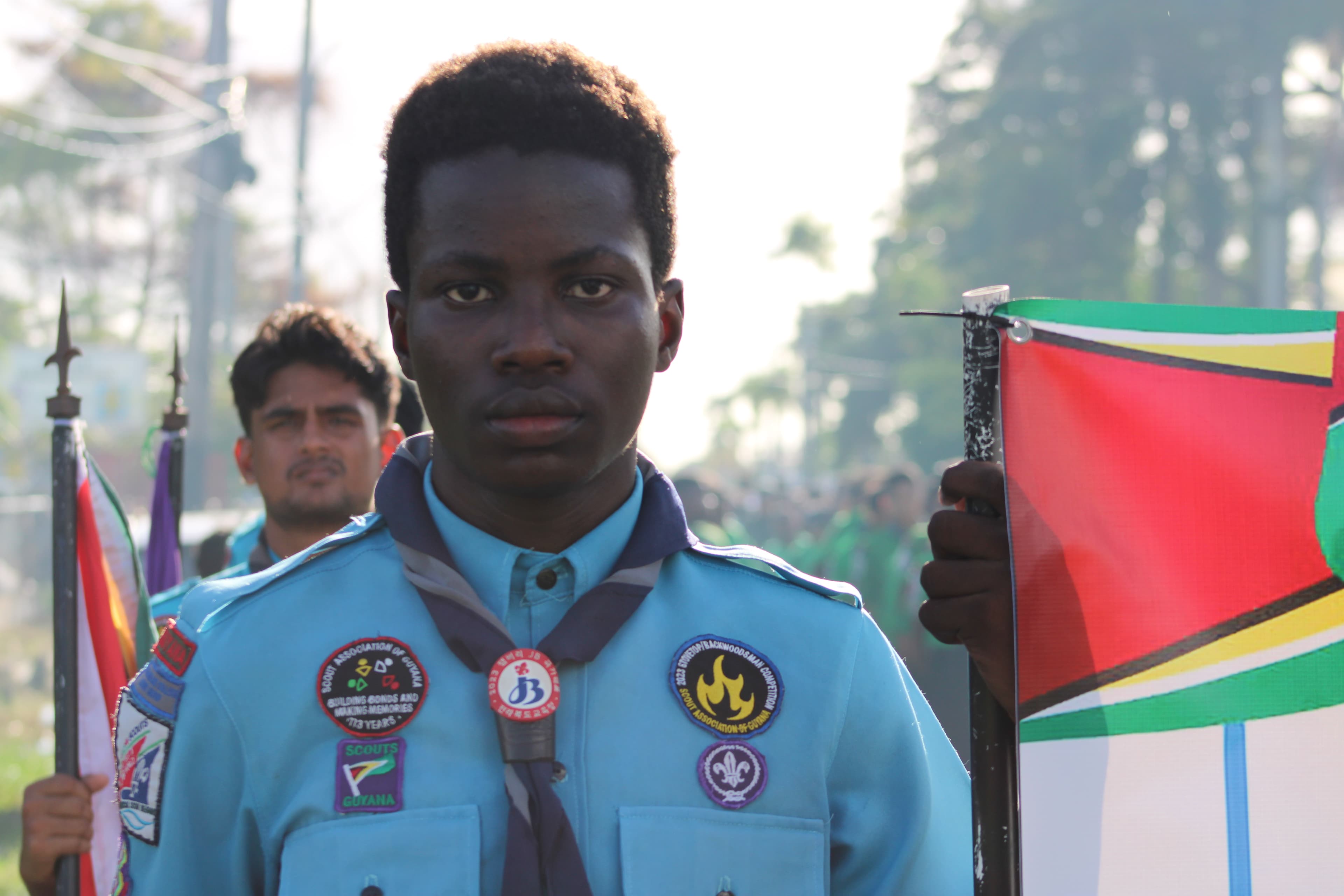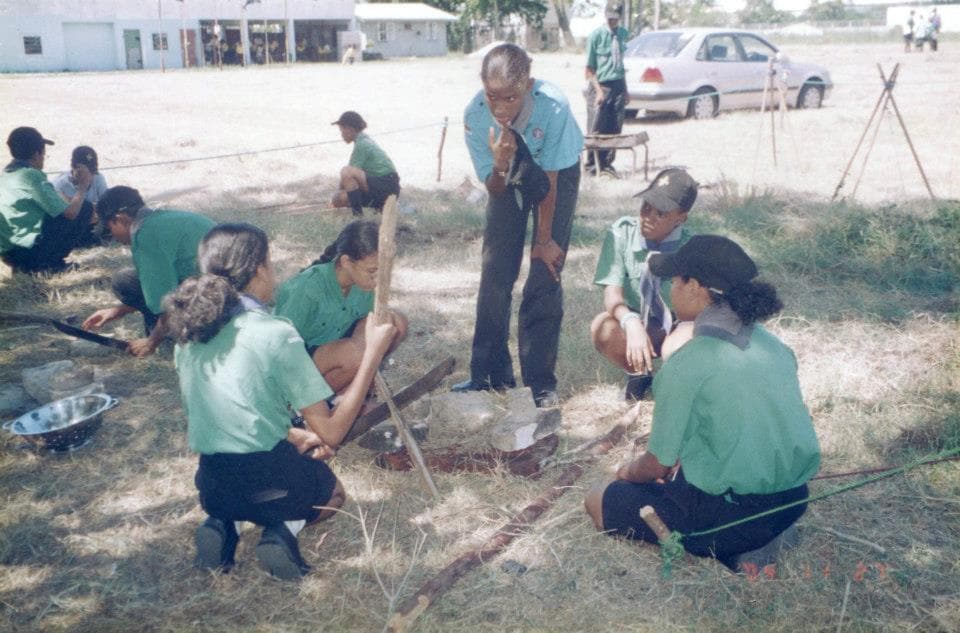
Lord Baden Powell urged us to “leave the world better than we found it”; BP is the founder and the first Chief Scout of the world-wide Scout movement. Scouting began in 1907 and was brought to Guyana in 1909 by Sergeant Major George Manley at Queen's College. Scouting is a nonformal educational movement that provides adult leadership designed to be fun and stimulating. St. Stanislaus College Scout Group or Troop 25 consists of four (4) sections: Cub Scouts (ages 7–10), Explorer Scouts, (ages 11–14), Venturer Scouts (ages 15–18), and Scout Leaders (ages 19+).
During the regular school term, the group hosts scout meetings every Friday in the St. Stanislaus College compound on the sand patch from 4pm – 7pm. At these meetings, scouts participate in various activities such as: Fire lighting, Backwoodsman, Pioneering, Semaphore, Archery, First Aid, Impromptu speaking, physical training, Games, etc. Our training as scouts can be applied to everyday life, shaping us into well-rounded individuals and productive members of society.

Image Description
Scouts and leaders engaging in a clean up campaign.
Scouting gives young people the opportunity to meet and interact with other young people from every corner of the planet. The World Scout Jamboree is among the largest gatherings of young people globally from more than 180 countries in which experiences are shared, culture is exchanged, and unbreakable bonds are forged. Scouts are given the opportunity to learn many different things, including but not limited to: languages (using flags [Semaphore] or dots [Morse code]), team-building skills, survival techniques, and problem-solving.
Youth debates are done to display an individual’s strength and weakness. Essays and passages are given to scouts to read and to share their perspective, while informal, empowering young people is at its core. One of the many ways young minds are stimulated is through the use of games. Kim’s game is one such where scouts are shown random objects and have to remember as many as possible with as much detail as possible in a short span of time. This develops the brain's ability to retain information and communicate ideas, which can be very useful when studying for an exam. Scouts come up with, plan, execute and evaluate activities every cycle. Whether it be for something as serious as fundraisers, or as simple as a reflection exercise.

Image Description
Scout leaders playing drums and having fun.
Do you know that scouts can cook a meal without using kitchen utensils? In fact, this technique is called Backwoodsman. Backwoodsman is practiced and used at camps, expeditions, competitions or training exercises. At camps and expeditions, scouts are tasked with setting up a fire place of their choice and must cook meals over a bed of hot coals. Backwoodsman is a necessary skill for scouts to have because it guarantees us hot, cooked meals no matter our surroundings or situation. Fire isn’t only used for food, light, and warmth but also for keeping insects and animals away. At camps, a campfire is constructed for everyone to come together and celebrate as one, displaying our many different talents.
To build one’s character, scouts participate in activities to implement the knowledge and experiences gained. We are trained to be young leaders and role models. This trait can be useful in every aspect of our lives, whether it be school or work. It also greatly affects how we interpret and approach situations, no matter how challenging. Leadership is a trait that can really determine how one navigates life and all of the hurdles. A personal experience from a fellow scout; "Because of scouting I have been able to be more expressive to others, handle and understand different people and their opinion while not making them feel pressured, generally talk to groups of people and build my confidence". This shows directly how their character improved over the years as a scout.
Essentially, scouting is about shaping an individual into a better version of oneself. Communication and teamwork are major reasons as to why these activities are successful. Shelters, tables, towers, and bridges are built to display the skills scouts have developed over time. First Aid training is also done as it is one of the more important skills taught at Troop 25.

Image Description
Scouts cooking on camp.
First Aid is not only useful at scouts, but in our everyday life. Additionally, personal safety is primary in any First Aid scenario. Another display of team-building and safety is the buddy system, which is usually practiced at camps. The buddy system is set in place so that no scout is left unattended at any time and their location is known. As patrols, we also work together to build human pyramids and structures. Building structures requires teamwork, trust, and communication and we understand that teamwork makes the dream work. St. Stanislaus College Scouts Group (Troop 25) is well known for its large-scale ‘Rope engineering’ projects, what we as scouts refer to as Pioneering. Scouts are sometimes tasked with constructing stretchers with rope and woods to carry a patient (simulation exercise). This not only helps to improve our pioneering and first aid knowledge, but our team-building and coordination skills. The older scouts share their skills and experiences with the younger scouts, showcasing leadership, cooperation, and sharing of knowledge. Team-building is not only practiced at scouts but at home, school, and work.
Troop 25 showed great resilience and commitment by switching to virtual meetings in the midst of the COVID-19 pandemic. We were unable to meet in person to have our meetings but committed and adaptable enough to evolve our program to meet the goals and objectives of our movement. If you are a young person who loves the outdoors and has some unique talent you would like to develop, come scout with us at Saints!



